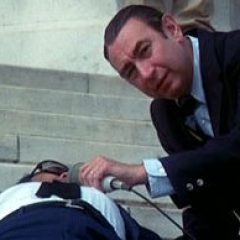He’s no James Frey, but the best-selling writer does have a problem with the truth.
“The events described in these stories are real,” humorist David Sedaris wrote in the introductory note to Naked, his 1997 collection of nonfiction essays. The New York Times was convinced: When Naked hit the best-seller list, it categorized the book as nonfiction. The Library of Congress called it biography, and Sedaris assured several interviewers over the years that the book was essentially factual. “Everything in Naked was true,” he told the webzine GettingIt in 1999. “I mean, I exaggerate. But all the situations were true.”
Except they weren’t, as The New Republic’s Alex Heard uncovered:
With each of those tales, I found multiple sources who made it clear that Sedaris had invented things entirely, in stories that were billed and sold as nonfiction. I then phoned Sedaris, who admitted to specific fabrications that I spelled out for him–with him unhappily confirming, for example, that he’d made up virtually everything about his midget guitar teacher, Mr. Mancini.
Some critics think this is no big deal:
Echoing Peter Carlson, who bleated about the article in The Washington Post, he also opined that none of it mattered anyway, because Sedaris is a humorist, so he gets a special pass to make things up. “We’re all in on the joke,” Zane wrote.
Yes and no. I assumed there was some exaggeration in Sedaris’ yarns — that’s the hallmark of any good storyteller. And his stories are funny, whether they’re fact or fiction. So who was really hurt by his lies?
Sedaris took a real person –George Sage — and turned him into a clownish stereotype. He claimed that an elementary school in Raleigh set up a program cynically designed to identify and cure young homosexuals by erasing their lisps. And he depicted a state mental hospital as being so out-of-control that a tiny seventh grader could waltz in and, within minutes, find himself working with violent patients. Does any of this matter? It did to the sources I found. Without exception, they were offended by what Sedaris wrote.
I’m more interested in his rationale. Why fib when he could’ve been just as successful telling the truth? Call it ficiton inspired by real events, a la Thurber — didn’t seem to hurt his career. It’ll be interesting to see if dishonesty hurts Sedaris’.

Leave a comment